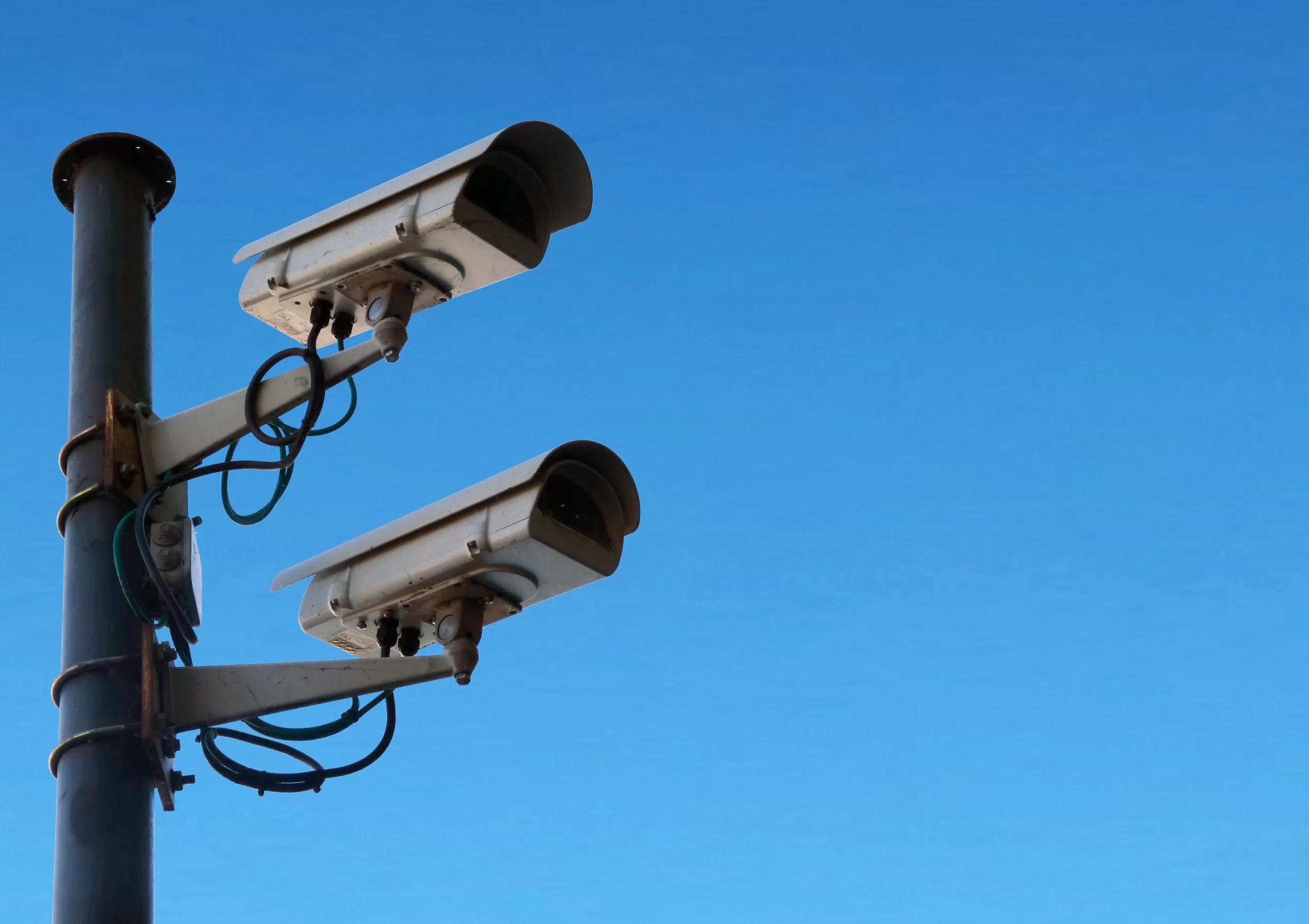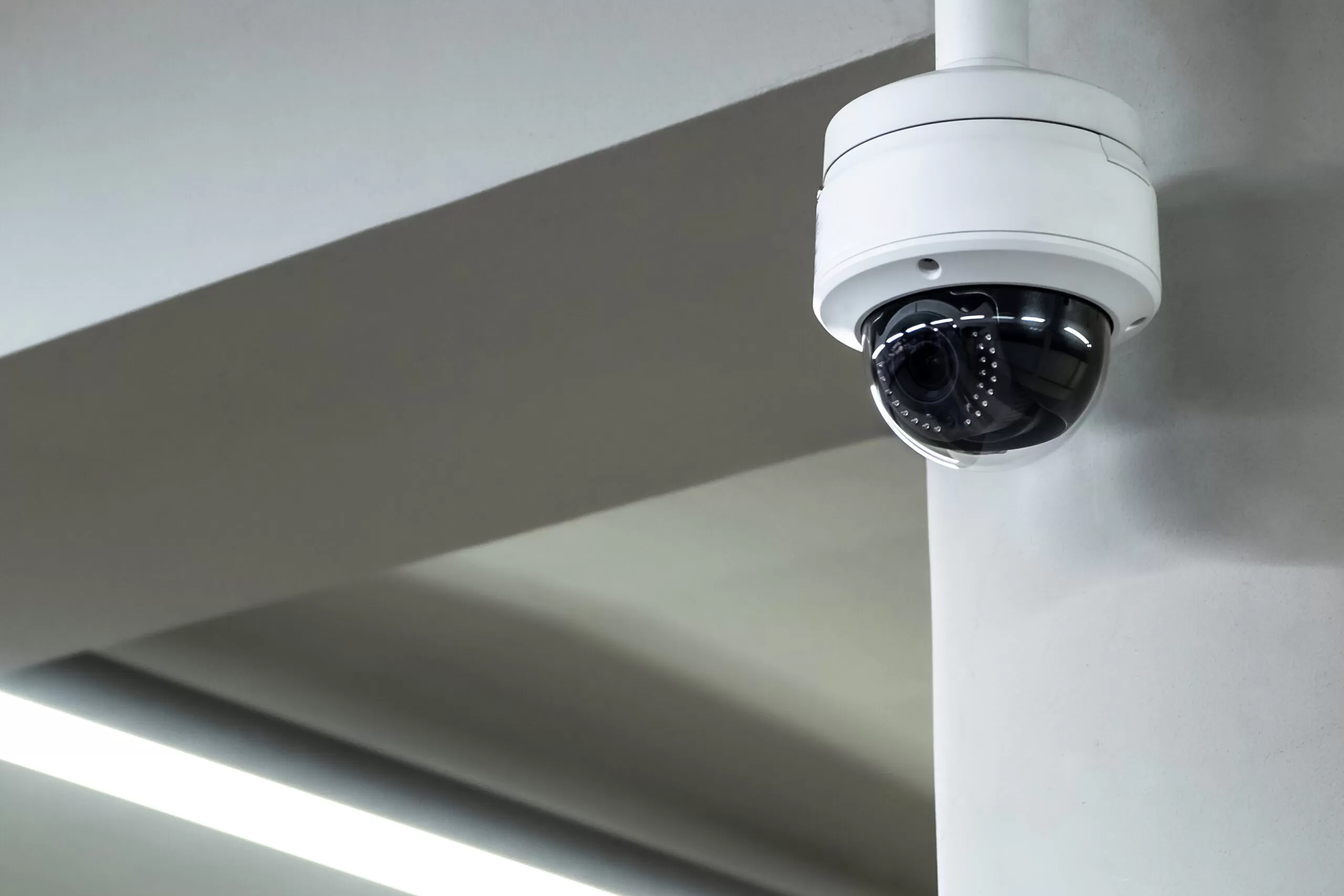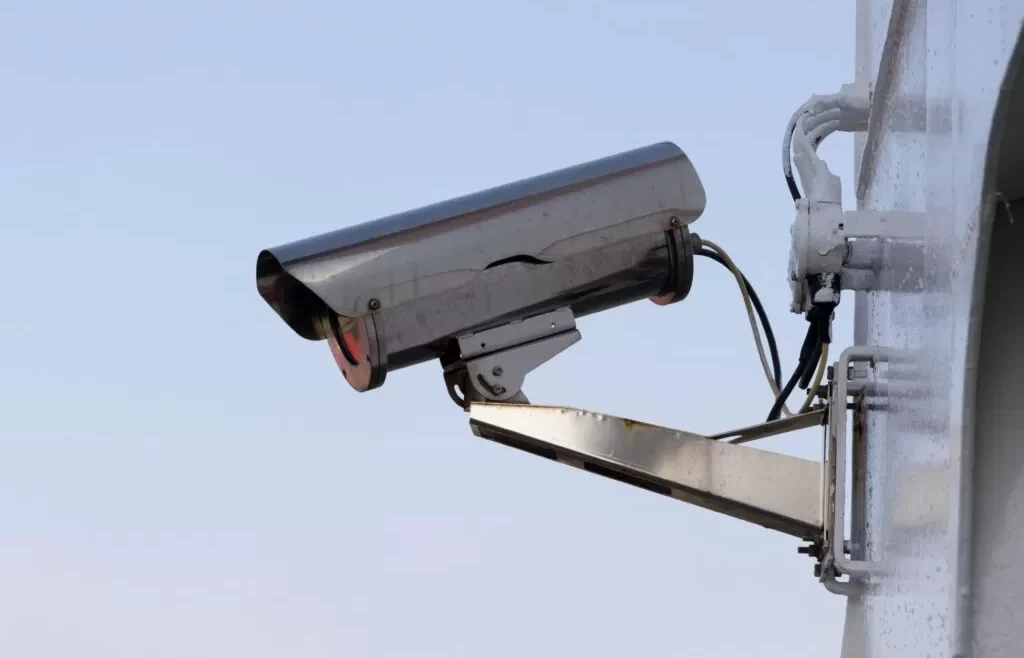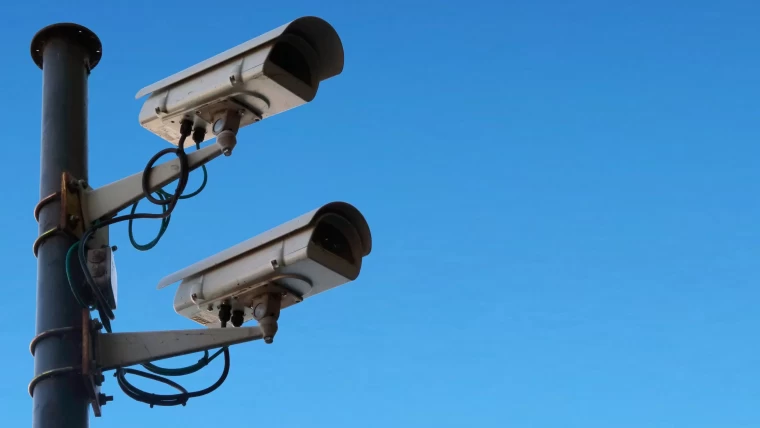If you are in the business of providing security at the federal level there are some critically important things you need to know about. There are rigorous standards and laws that regulate security cameras for federal use. Some camera manufacturers are forbidden from using them on federal-level sites because the nations that produce these cameras are in an adversarial position with the United States. The federal government maintains strict standards of security cameras for federal use.
Security cameras for federal use follow specific protocols and are closely monitored. Violating these standards and laws carries severe penalties. It is crucial to understand which security cameras for federal use are allowable if you are to begin working with federal security systems.
While security contractors routinely work with the federal government, this area of the security business is not like a private business. Some federal sites have specific security issues and protocols that require certain types of video and security camera monitoring. This is why it is important to understand which security cameras for federal use are allowable.
This guide will introduce you to the topic of security cameras for federal use. Which security cameras for federal use are acceptable and what are some examples of those that are not? We will also offer some examples of the kinds of security cameras for federal use that are NDAA-compliant.
What are Security Cameras?

Security cameras are video recording devices that capture live and recorded footage of your home, property, or business. Modern security cameras can be viewed with conventional monitors or on a smartphone or other remote smart device. Security cameras are motion-activated and begin working the moment there is movement. Some security cameras operate 24/7 to provide constant surveillance. The feed to continuous recording is called a continuous video recording, or CVR.
Security cameras provide several clear benefits. The presence of security cameras can operate as deterrence. Most criminals will shy away from sites where they can be seen, and the obvious presence of security cameras is often enough to prevent a crime from occurring. If a crime is committed, security cameras provide video evidence of the crime so it can be properly prosecuted.
Type of Security Cameras For Federal Use
There are some highly specific requirements for security cameras for federal use, and these come with a certain type of rating. We will discuss this below, but the two most common types of security cameras for federal uses are dome cameras and IP cameras. Both have their advantages, but each provides specific types of security.
Dome cameras
Dome cameras are so-named due to their unique shape. These cameras are designed to withstand all kinds of weather and are therefore great security cameras for places that experience extreme weather.
The design and construction of dome cameras make them ideal for extremely low light since the shape allows the lens to detect light even in darkened areas. Most come with infrared LED capabilities which means they can still see even in areas where there is no light at all.
All dome cameras today are capable of sending video signals over the internet. This means you can access your security footage remotely.
One distinct advantage of dome security cameras is their shape, size, and angle. These are tight cameras that can be directed into small and hard-to-see areas for some of the most comprehensive security. They can be installed almost anywhere due to their compact size. The wide angle that dome security cameras provide allows you to expand your field of vision over the widest possible range. This is why you will see dome security cameras in parking lots, small spaces indoors, and in homes. The versatility of dome cameras makes them a favorite for all types of security needs.
The simple design of dome security cameras tends to render them inconspicuous. This means they can often be unnoticeable. This is an advantage for two reasons: Dome cameras can be inobtrusive in places where you want to preserve the look of the space. Churches, areas around the home, and places where the interior design is important to make great places for dome security cameras. That dome security cameras can go unnoticed also makes them ideal for surveillance in areas where the goal is to detect and document suspicious or criminal activity. Perpetrators cannot see the camera and will find themselves recorded while committing criminal acts.
Overall, dome security cameras are the most versatile and effective security cameras, and they blend in with their surroundings to make them unnoticeable and unobtrusive.
IP cameras
IP cameras are Internet Protocol security cameras. IP security cameras provide video surveillance by sending and receiving footage over the internet. As the name suggests, IP security cameras can connect through WiFi or over the power over the ethernet (PoE) cable. IP security cameras are most often used with network recorders or digital recorders that are connected to a larger linked security system.
IP security cameras have the ability to store recorded data and transfer it digitally. Unlike the types of security cameras that preceded IP security cameras, these do not require a central recording system. They can record and store data independently and also load the data to a central system if needed. IP security cameras do not require something like a DVR to access and view the footage.
Some of the advantages of IP security cameras include the ability to provide high-resolution footage, expanded coverage areas, and the image quality does not decrease over longer distances.
The main security camera that came before IP cameras were CCTV security cameras. These were primarily capable of securing a perimeter. The range and depth of CCTV cameras were not sufficient for the kinds of advanced security demands of federal security. IP security cameras, on the other hand, are capable of motion recognition and tracking, infrared viewing and detection, high definition, and night vision. These advantages render IP security cameras a preferred security method for federal use.
What are NDAA-compliant cameras?

NDAA-compliant means the security equipment and system comply with the National Defense Authorizations Act. This is a set of federal laws passed annually by congress and adheres to protocols laid out by the Department of Defense.
The specific part of this legislation that pertains to anyone who wants to provide security for federal sites is spelled out in Section 889: Prohibition on certain telecommunications and video service equipment. This section prohibits the use of video, surveillance, and electronic equipment manufactured and sold by specific companies from the People’s Republic of China. The prohibitions include:
- Telecommunications equipment is produced by Huawei Technologies Company, ZTE Corporation, or any of its affiliate entities.
- Video surveillance equipment is produced by Hytera Communications Corporation, Hangzhou Hikvision Digital Technology Company, Dahua Technology Company, or any of their affiliate entities.
- Telecommunications or video surveillance services provided by the companies listed above or anyone using equipment manufactured by the companies listed above.
Contracts to provide security for federal locations can be lucrative. But you need to get an understanding of this section of federal law in order to be compliant. One of the easiest ways to stay compliant with NDAA regulations is to simply determine which security equipment is NDAA-compliant and use these manufacturers.
Approved NDAA-compliant Top Brands
The sure way to know that your equipment is NDAA-compliant is to sue brands that are known to be approved for federal use. Some of the top brands include:
Axis: This is a Swedish company. Founded in 1984, Axis specializes in NDAA-compliant surveillance. They offer access control, video recorders, security cameras, and full security systems. Axis is known for providing some of the most advanced security equipment.
AACTi; This is a Taiwanese company that specializes in NDAA-compliant security cameras and recorders. Also providing some of the most advanced equipment, they are also known for reliability.
Bosch: This German company has been in business since 1886. They began producing NDAA-compliant security cameras in the 1990s. They also produce recorders, and motion detectors to work with their security systems. Bosch security systems are favored by some of the most secure sites like fire departments, educational institutions, and large entertainment facilities.
Digital Watchdog: This is an American company specializing in NDAA-compliant security cameras, software, and recorders. Digital Watchdog is becoming one of the most trusted brands in NDAA-compliant security systems.
Mobotix: Another German company that specializes in NDAA-compliant security cameras. They also make audio surveillance equipment and access control systems. Mobotix is known for its high-definition video footage and weatherproof webcam technology. Cameras made by Mobotix are used all over the world for high-importance security sites.
Pelco: This is another American company. They were founded in 1957 and have come to specialize in NDAA-compliant security technology. Pelco offers advanced security cameras for home and business.
Samsung: A well-known name in electronics, Samsung is a Korean company that started in 1977. They specialize in NDAA-compliant security cameras and security systems that include recorders, and related accessories.
Who should the NDAA concern?
Anyone providing security for any federal facility should be aware of the regulations in the NDAA. The law itself is complex, but a simple list of NDAA-compliant companies will suffice in most cases. There is a site that provides detailed information on the NDAA and what this means for security contractors and researchers working with federal sites and with federal funding.
How can Circle Security System help federal contractors?
The complexities of the National Defense Authorization Act can be daunting. The regulations themselves are extremely complex and making certain you are in compliance is absolutely essential if you are in the business of providing security for federal use.
A list of NDAA-compliant security manufacturers is certainly helpful but it is not a guarantee that your security systems are in complete compliance with NDAA regulations. Circle Security System has a staff of professional consultants who know their way around these regulations and can help you set up your security system for NDAA compliance. Since security cameras for federal use depend entirely on NDAA compliance, it is best to choose professionals like Circle Security System to make certain your security system meets all federal regulations.
Security Cameras For Federal Use FAQS
What are Security Cameras? Security cameras are video recording devices that capture live and recorded footage of your home, property, or business. Modern security cameras can be viewed with conventional monitors or on a smartphone or other remote smart device. Security cameras are motion-activated and begin working the moment there is movement. Some security cameras operate 24/7 to provide constant surveillance. The feed to continuous recording is called a continuous video recording, or CVR.
What are NDAA-compliant cameras? NDAA-compliant means the security equipment and system comply with the National Defense Authorizations Act. This is a set of federal laws passed every year by congress and adheres to protocols laid out by the Department of Defense.
What are dome cameras? Dome cameras are so-named due to their unique shape. These cameras are designed to withstand all kinds of weather and are therefore great security cameras for places that experience extreme weather.
What are IP cameras? IP cameras are Internet Protocol security cameras. IP security cameras provide video surveillance by sending and receiving footage over the internet.
Circle Security Solutions are the professionals you should contact for security cameras. We have professional consultants on staff who understand NDAA compliance and security cameras. We can provide you with the security camera system that will fit your needs, and we can help ensure that your security cameras are NDAA-compliant.
Circle Security Solutions provides old-school service and values that we combine with the latest technology to provide the best security systems for your home or business. Our professionals install and service state-of-the-art security systems that are safe and easy to use.
We offer security and fire alarm systems, 24-hour central monitoring, HD surveillance, and home control and automation. Whether you want a simple security camera system for your home or a full security system that includes HD video monitoring and recording, Circle Security Solutions can provide you with a system that meets your needs.
Circle Security Solutions is the premier security professional for South Florida, serving Miami, Boca Raton, Palm Beach County, Broward County, and Miami-Dade Counties.


